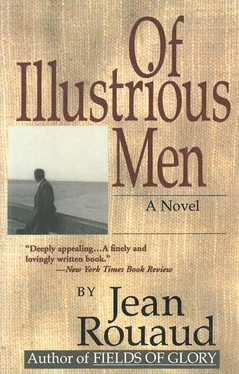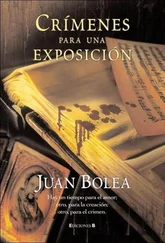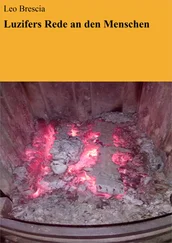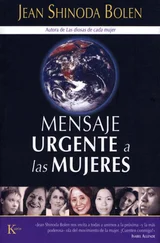Jean Rouaud - Of Illustrious Men
Здесь есть возможность читать онлайн «Jean Rouaud - Of Illustrious Men» весь текст электронной книги совершенно бесплатно (целиком полную версию без сокращений). В некоторых случаях можно слушать аудио, скачать через торрент в формате fb2 и присутствует краткое содержание. Год выпуска: 2011, Издательство: Arcade Publishing, Жанр: Современная проза, на английском языке. Описание произведения, (предисловие) а так же отзывы посетителей доступны на портале библиотеки ЛибКат.
- Название:Of Illustrious Men
- Автор:
- Издательство:Arcade Publishing
- Жанр:
- Год:2011
- ISBN:нет данных
- Рейтинг книги:4 / 5. Голосов: 1
-
Избранное:Добавить в избранное
- Отзывы:
-
Ваша оценка:
- 80
- 1
- 2
- 3
- 4
- 5
Of Illustrious Men: краткое содержание, описание и аннотация
Предлагаем к чтению аннотацию, описание, краткое содержание или предисловие (зависит от того, что написал сам автор книги «Of Illustrious Men»). Если вы не нашли необходимую информацию о книге — напишите в комментариях, мы постараемся отыскать её.
Of Illustrious Men — читать онлайн бесплатно полную книгу (весь текст) целиком
Ниже представлен текст книги, разбитый по страницам. Система сохранения места последней прочитанной страницы, позволяет с удобством читать онлайн бесплатно книгу «Of Illustrious Men», без необходимости каждый раз заново искать на чём Вы остановились. Поставьте закладку, и сможете в любой момент перейти на страницу, на которой закончили чтение.
Интервал:
Закладка:
The return of the responsible father was tragic. Our little aunt, her arm in a sling, tried hard to intervene, arguing that it wasn’t serious, just a few stitches, and she’d hardly felt a thing. Father went upstairs, opened a drawer in the chest, grabbed his wartime gun — the one with which (a famous episode in our family mythology) he had forced his way through a German roadblock — and led the dog out to the bottom of the garden.
Later, he told anyone who could bear to listen, that his arm had faltered when he saw the animal’s imploring gaze, with all the incomprehension in the world concentrated in the dark pupil staring at him — So this is my reward for all the love I’ve lavished on you — and then incomprehension turned into revolt, his gaze became ferocious, he bared his teeth, his growl rose in a crescendo, but just as the dog was about to spring Father’s hand became steady again and he pressed the trigger. The explosion echoed around the tall brick walls. “Tres de mayo” in our garden. The gun, which had remained silent throughout the war, had claimed its first victim.
When we were back in the car after the solemn burial of the bird, Father opened the guide to Brittany at the page describing the alignments and, as it reported 874 standing stones, he took his pen, crossed the number out, and wrote above it: 875. He turned around to us. And winked.
The next trip was fatal to the Dyna. This time we had been promised a surprise. The collector of ancient stones had shrouded in mystery the brass-headed stud stuck in the heart of Brittany. At that spot, there was nothing on the map, or at least on what we could read of it — the red main roads, the yellow secondary ones, the green-bordered ones of particular interest to tourists — to indicate anything special. It wasn’t even a hamlet, it was just a place in the remote countryside near the narrow loop of a river, the Blavet no doubt, where the old granite substratum forces the streams into erratic detours. We stopped halfway for lunch at one of his favorite restaurants in which, after he had made a point of announcing our presence, we were served a meal that corresponded less to the day’s menu than to his preferences. Thus, when the people at the next table coveted our chocolate mousse, they were told with some glee that it didn’t exist. And, menu in hand: “Plum flan, apple tart, sherbet — where did you see mousse?” This kind of favoritism was a little disturbing, because it implied that during the week other women danced attendance upon him and that there were a lot of cooks along his way who prepared his favorite dishes, whereas it seemed to us that this role belonged to Mother alone. Everywhere in his wake we were welcomed as the emperor, his wife, and the little prince and princesses. He seemed pleased to introduce us, to allow us to benefit from his fame, convinced that it reflected back on us, which was quite true, as we realized after his death, although then it didn’t do us any good, but at the time we would have preferred less partiality and more anonymity. Everything that conspired to make him an illustrious man — his strength of character, his sunny nature, his feeling for words — reminded us of the difficulty we experienced in growing up in his shadow. For other people, he was the man whose next visit they looked forward to, a promise of spring, a bird of passage. For us, he was the master of the house.
To reconstruct this weekday life of his that he led so far away from us, all we had were the names with which he peppered his stories: names of people, places, hotels that, in the absence of any reference points, took on mythical dimensions in our eyes. He reigned over a fabulous geography: Pont-Aven, Vannes, Quimper, Peaule, Roscoff, Rosporden, Landivisiau, Hennebont, Loudeac. The tiniest village took on an exotic charge when he spoke of it. On our trips with him, the illusion remained. As if by his mere presence he had the power of aggrandizing everything. And yet we were in a position to maintain that the towns we drove through were pervaded with a sense of boredom and sadness, that the hotels were modest, and that hotel cooking wasn’t always as good as Mother’s.
Wherever we stopped we were given an extra special welcome, which gave us the feeling of being considerable personalities, and we were told in confidence, as proof there was nothing to hide, a few fragments about his nomadic life. Our informant would come up to our table just as we were starting on the dessert and inquire, “Is everything all right?” — which was all the more self-assured in that he knew he had looked after us very well. He would tell us of an unusual man who on some evenings would stay behind to chat, pulling several tables together, inviting people on their own to join him, suggesting a game of cards, but who on other evenings would go up to his room early to bring his order forms up to date or simply to read, if he felt tired. We were confirmed in what we already knew, that he avoided political discussions. When people ventured to ask him his opinion, he would answer, “My politics is sport,” which was less a profession of faith than an elegant, and perhaps evasive, way of cutting short the kind of debate in which passions get out of hand and vows of friendship are smashed to smithereens. He would invariably put an end to such differences of opinion by saying “There are better things to do,” in which we recognized him as we knew him, because he had spent his whole life doing things — doing things, making things, achieving things. He made his first piece of furniture when he was twelve; he made a magic lantern to amuse his friends, tracing on grease-proof paper several of the adventures of the mischievous comic strip character Bicot, playing all the parts himself; he did a circus turn with Flip, a black and white ratter, the companion of his adolescence (famous photo taken during a youth club entertainment in which, with glasses on their noses and cigarettes in their mouths, they are both reading the same newspaper). He produced children (three of whom survived); he covered kilometers (fifty thousand a year); he founded associations. At thirteen he was already the treasurer of the Random Soccer Club, which he and some of his pals had started. The pals — as he captioned a later photo in which a group of beaming boys are posing in total chaos, some in shorts, others with their trousers hitched up to their knees, and all fighting to get hold of the ball. He stands behind them, dressed in a suit and tie, holding a cigarette between his fingertips with the elegance of James Bond holding his revolver. He is smiling, amused, quite simply happy to have worked toward the success of this instant. His round-rimmed spectacles, the kind worn by severe intellectuals, seem to keep him aloof from the general euphoria, as if he were afraid they might get broken in the merrymaking. According to the date written on the back of the photo he was sixteen, and already just over six feet tall, which makes him tower over the group.
Did the elegant young man with the cigarette suffer from not feeling quite at home in this remote part of the countryside where he was born, did he suffer from forcing the friendship of his companions in an effort to convince himself of the opposite, and from trying to deploy his enormous talents within the very little that life was prepared to grant him? Did the thought sometimes cross his mind that if he had been better served by events and by the accident of birth he would have deserved a better fate? Looking at him in this photo, you find yourself dreaming of a glorious future for this handsome, enterprising young man, now that Munich has dispersed the clouds, that the specter of war is retreating, and that peace has been guaranteed for a thousand years. But for the moment it seems that the most important thing for him is not to be alone. There are quite a few who remember painfully that he can’t bear to be called an only son — perhaps the only occasion on which he used his fists. He thought of his stillborn or miscarried brothers and sisters as if such an insult was a reproach to him for having survived this child carnage. Did he feel so much an orphan that throughout his life he tried so hard to become part of a family? Later, he set up a theater company, whose crowning achievement was the memorable performance of The Three Musketeers in occupied Random. After that he organized the reunion of the “forty-year-olds,” and for this, so that all his age group could take part, so that no one should be excluded, not even the least presentable, the inveterate alcoholics or the near-tramps, he put his hand in his own pocket and paid for the traveling expenses and meals of the most indigent among them. Andre and his wife, two magnificent wrecks who had met and found the consolation of love while being dried out at the Pont-de-Pitie Hospital, and who are standing next to him hand in hand in the souvenir photo of the group of these new forty-year-olds, looking older than their age, of course — every year of hardship counts double — but radiant, Andre seigneurial, looking like a responsible man, in a check suit and with his hair tousled, Odette, with a coquettish look in her eye but with the gaps in her teeth revealed by her big smile, in a jersey dress whose shabbiness is betrayed by the bulges beneath her knees, wearing what is probably her only piece of jewelry, her First Communion crucifix no doubt, because for such an event even the poorest don’t consider the expense, both of them proud of the respect shown them by Joseph the Great, under his protection recognized, adopted — part of the family, in short. He, Joseph, a whole head taller, is wearing an open-neck shirt, which makes him look relaxed, and his smile is just the same as it was twenty-four years earlier although less reserved, as if he had decided that his place was here, among these people — and anyway, he’s considering the proposition of the director of the little Random hospital who is just coming up to retirement age and has suggested him as his successor — smiling one of his last smiles that hasn’t been distorted by suffering.
Читать дальшеИнтервал:
Закладка:
Похожие книги на «Of Illustrious Men»
Представляем Вашему вниманию похожие книги на «Of Illustrious Men» списком для выбора. Мы отобрали схожую по названию и смыслу литературу в надежде предоставить читателям больше вариантов отыскать новые, интересные, ещё непрочитанные произведения.
Обсуждение, отзывы о книге «Of Illustrious Men» и просто собственные мнения читателей. Оставьте ваши комментарии, напишите, что Вы думаете о произведении, его смысле или главных героях. Укажите что конкретно понравилось, а что нет, и почему Вы так считаете.












